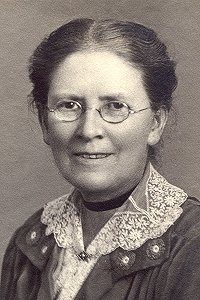In popular culture
The Pointer Sisters and Nell Carter sing this song in an episode of Gimme a Break! titled "The Return of the Doo-Wop Girls" that originally aired on February 13, 1983.
Henry G. Sanders sang it in an episode of Dr. Quinn, Medicine Woman entitled "The Circle".
The song in its reworked version, "Can the Circle Be Unbroken," appeared in the 2004 film Iron Jawed Angels , although the film's website shows the original song as the title. [12] . This is an anachronism as the lyrics they sing don't come out until 1935 and the movie is set between 1912-1920
In the 2008 series Sordid Lives: The Series (based on the play and movie of the same name) by Del Shores , characters Bitsy-Mae Harling, Wardel Owens, Peggy Igram, GW Nethercott, and Juanita Bartlett sing it briefly in Season 1 Episode 4.
June Carter's rendition of the song plays over the Deadwood season 1 episode 8 closing credits.
In the film 2012 , the song can be heard on the family's way to Yellowstone Park.
In 2012, Belgian film The Broken Circle Breakdown (also known as Alabama Monroe) used the song on its soundtrack.
In 2016, Canadian circus "Cirque Éloize" used the song on its show "Saloon".
The song is covered in Treme season 2 episode 10, "That's What Lovers Do", at Harley's memorial service.
A season 3 episode of Pretty Little Liars was titled after the hymn and featured the song within the episode.
The hymn is sung every year at the Country Music Hall of Fame, at the conclusion of each medallion induction ceremony. It is performed by the inductees of that respective year as well as any previously inducted members of the Hall of Fame who are present.
Two versions of the hymn are featured in the soundtrack for the 2013 video game BioShock Infinite : a traditional choir version, performed by Maureen Murphy, and an award-winning acoustic version performed by Troy Baker (guitar) and Courtnee Draper, the voice actors of main characters Booker DeWitt and Elizabeth, respectively. The use of the original lyrics was controversial: some commentators, apparently unaware of the differences between the original and Carter versions, criticized the omission of "Lord" from the chorus as anti-religious censorship. The choice was explained as simply being consistent with the 1912 setting of the game, at which point the word "Lord" had not been added. [13] [14] The song won "the Best Song in a Game" award during the VGX 2013. [15] In March 2013, the score for BioShock Infinite contained "Will the Circle Be Unbroken (Choral Version)" (2:56) on Track 3.
Senate candidate Beto O'Rourke joined Willie Nelson onstage to play and sing "Will the Circle be Unbroken?" among other numbers at Nelson's annual 4 July picnic, in 2018. [16]
In 2025, the final scene of American film Castration Movie Anthology ii. The Best of Both Worlds saw the song performed by protagonist Circle (Alexandria Walton) on acoustic guitar.
This page is based on this
Wikipedia article Text is available under the
CC BY-SA 4.0 license; additional terms may apply.
Images, videos and audio are available under their respective licenses.

